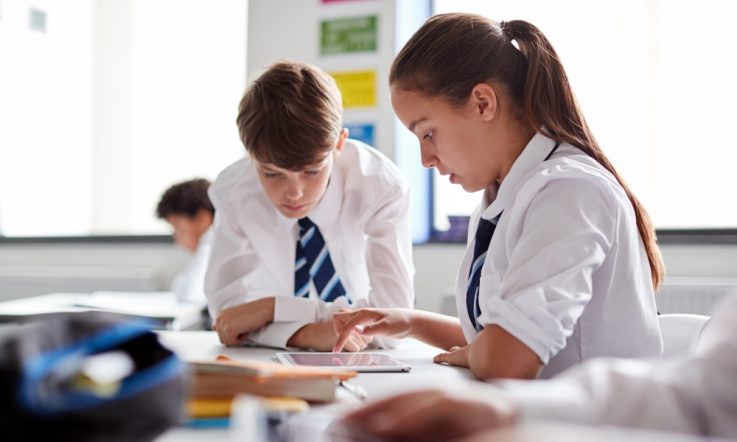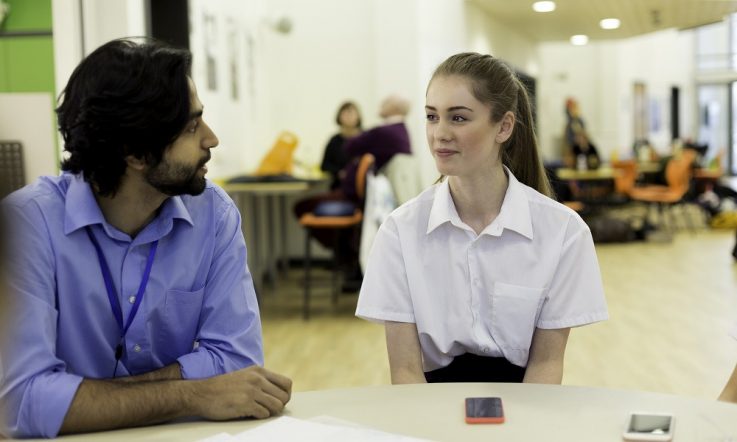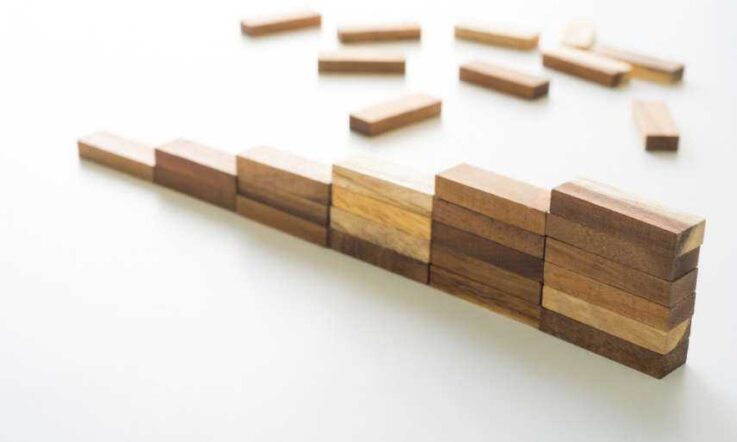Determined to lift the literacy and numeracy results of students at her school, Jessica Colleu Terradas and her colleagues developed an intensive, individual instruction program for lower performing students.
To date, some students in the program at Como Secondary College in Perth, Western Australia, have made up to five years of progress in 12 months, and just last year, a student who went through the program was the first in the class to gain entry to a university.
As a special education teacher, Colleu Terradas works in an Intensive Learning Team that caters for 50-60 students in Years 7-10 each year. The nine classes target reading, writing and mathematics with the overall goal of having students rejoin regular classrooms once they have the basics in place.
Students in the program, according to Colleu Terradas, have between two and seven years of delay in their learning.
‘Some of them are seven years behind their peers,' she explains. ‘They come into Year 7 and some of them can barely read so they can't access the curriculum, and this is a vicious cycle because if they can't access the curriculum, then they can't do the work.
‘And then they start mucking around or they're really good at having work avoidance strategies and the more they muck around, the more they've been kicked out of the classroom, so there's less exposure to learning or to practice and then the gap is getting bigger and bigger.'
Colleu Terradas explains that her team identifies students at risk by having them undertake a screening process. All students in Year 7 participate in the Progressive Achievement Test (PAT) and the school also collects as much data as possible to build a profile for each student.
This includes data from primary school reports, parent anecdotes, information from school psychologists and more.
From there, Colleu Terradas says her team looks for the best teaching approach that will prove most effective for the students in the class.
‘…Those kids are so far behind that we needed to accelerate their learning, not just a year for a year of teaching input, but more than that, to try and narrow that educational gap.'
The ‘I do, We do, You do' approach
After doing a fair bit of research and working with the school leadership team, Colleu Terradas and her colleagues decided to look at direct instruction as a way to accelerate the learning of the students at risk. Their approach follows the ‘I do, We do, You do' formula.
Colleu Terradas says this approach allows students to get enough practice on any given task to ensure that there is a high chance they will succeed at it, which results in them being less afraid to try new things.
‘It's also based on mastery learning so the kids are not moving until they've achieved a level of mastery. And having that “I do, We do, You Do” formula, we've got the kids not having to give an individual response until they all practice together and until they master that skill,' she says.
Colleu Terradas says that in her classes, there is a high rate of student-teacher interaction and a high level of accountability for students.
‘I use a lot of signals where the kids have to respond in unison and that is for me to target any mistakes or to give them immediate feedback. And I can use error correction procedures within that format and that's really helpful.
‘Then the learning or the more complex tasks are broken into subsets to reduce the cognitive load – so that means the task is not too easy so it's not too boring for the student. And then it's not too hard as well because otherwise they get frustrated and then give up. So it has to be just right. I believe that any task you introduce should be at the same time both challenging and attainable for those kids,' she adds.
Colleu Terrdas says that after spending time in this program, some students find themselves moving back into regular classes. Most often, this will be students who've recently arrived in Australia and speak English as a second language, but there are other students as well.
‘We also have other students with learning difficulties who've shown that much progress that we're able to put them back into mainstream and they're coping fine, which is a very rewarding experience for us to be able to see that.
‘So what we do is we have that constant monitoring of progress and our main focus is on progress, not academic [achievement]. I work with my students about how they can track their progress and how they can visually and explicitly see how they're progressing because I think that's very important to shift that into learning,' she says.
This approach has also resulted in a shift in attitude – students who'd previously found school unpleasant are now in an environment where they feel safe and free to make mistakes or take risks.
‘It's really about equipping them to be independent and to safely study and to develop those skills about resilience, positive growth mindset, their attitudes towards learning and taking risks and seeking help when they're back into mainstream in the middle of another 30 kids,' she adds.
Networking and collaboration
Colleu Terradas has been recognised for her innovation and enthusiasm by being named one of 12 teachers to receive a 2019 Commonwealth Bank Teaching Award, which are awarded in partnership with Schools Plus.
Other teachers from around Western Australia have been impressed with the program, so regularly visit the school to watch it in action. Colleu Terradas says that this is a great opportunity to network with others and to share her practice.
‘We have a common goal – we all want our students to learn and to progress and being able to share, because we all have different school models, so the context is different, the audience or the school context might be different, so it's really important to be able to share this and to share successes, as well as setbacks,' she says.
Colleu Terradas says another important element of the program is the involvement of parents and the wider community.
‘I'm in regular contact with parents through email, phone calls and every year we organise parent information sessions to discuss our program and to show them or train them about how they best support their kid at home. Because I think a lot of them feel really powerless and they're highly willing to help their kids the best they can.'
Colleu Terradas says her team uses lots of sources of information to build a profile for each student they teach. How do you do this with your students? What information do you use to build this profile?
How do you help students see the progress that they’re making and the next steps in their learning?



